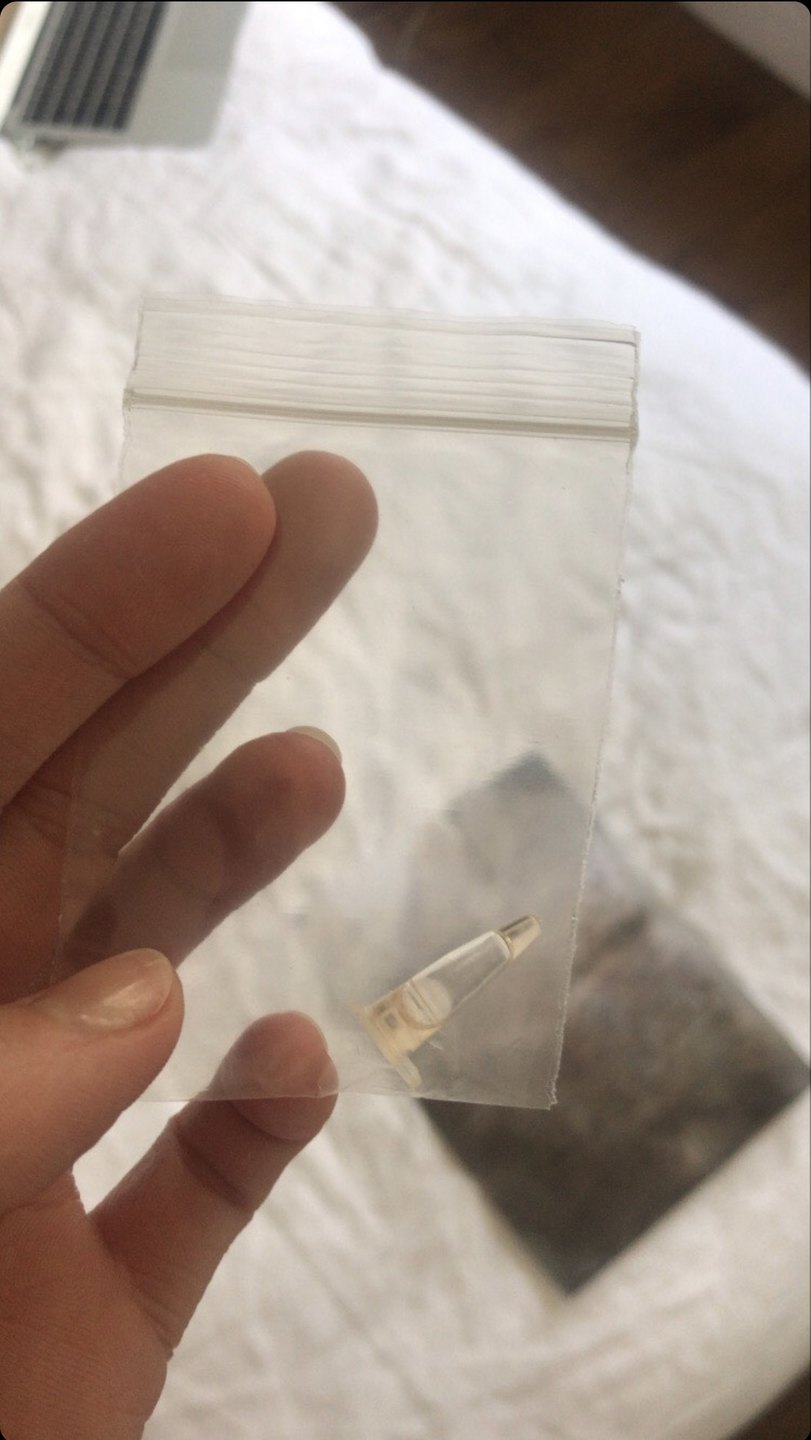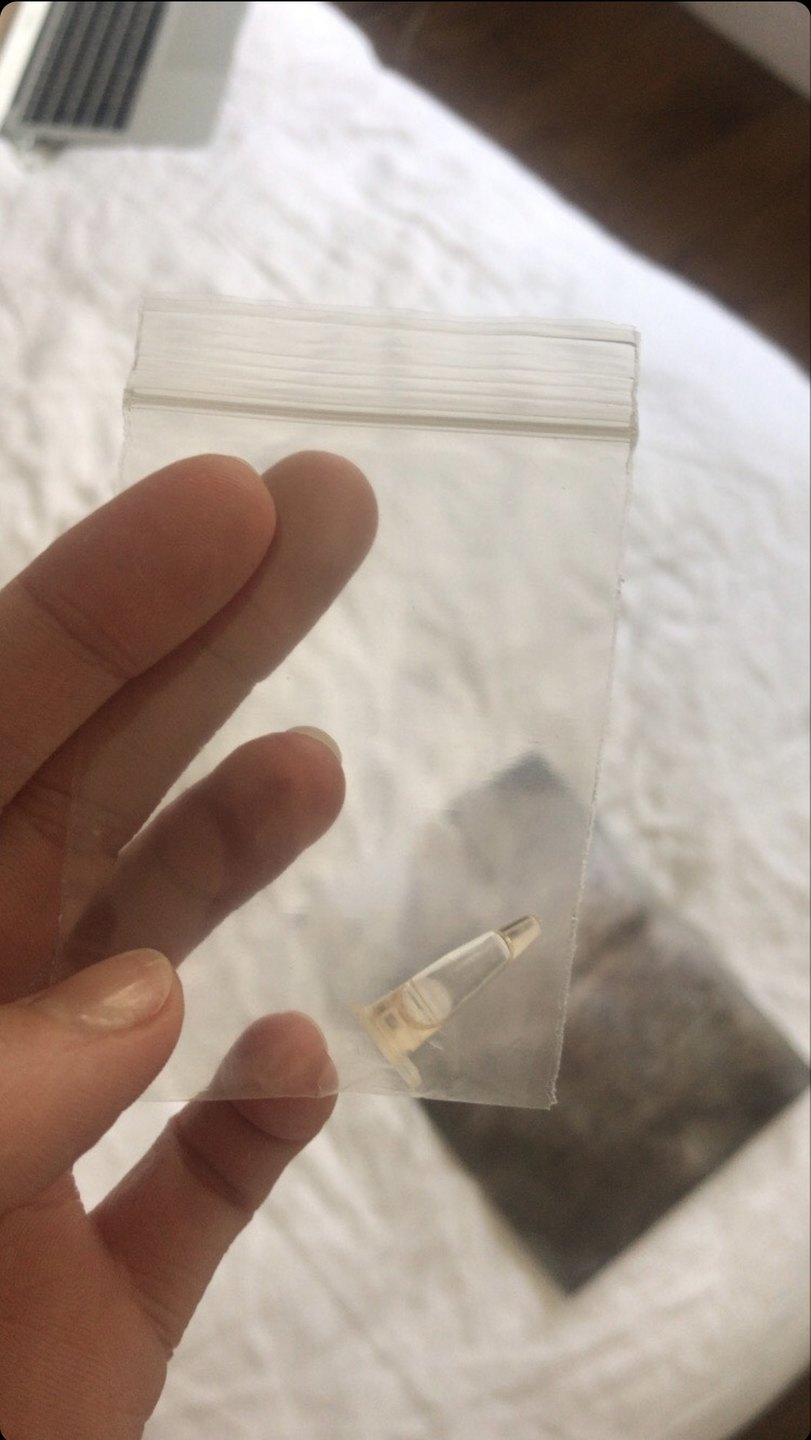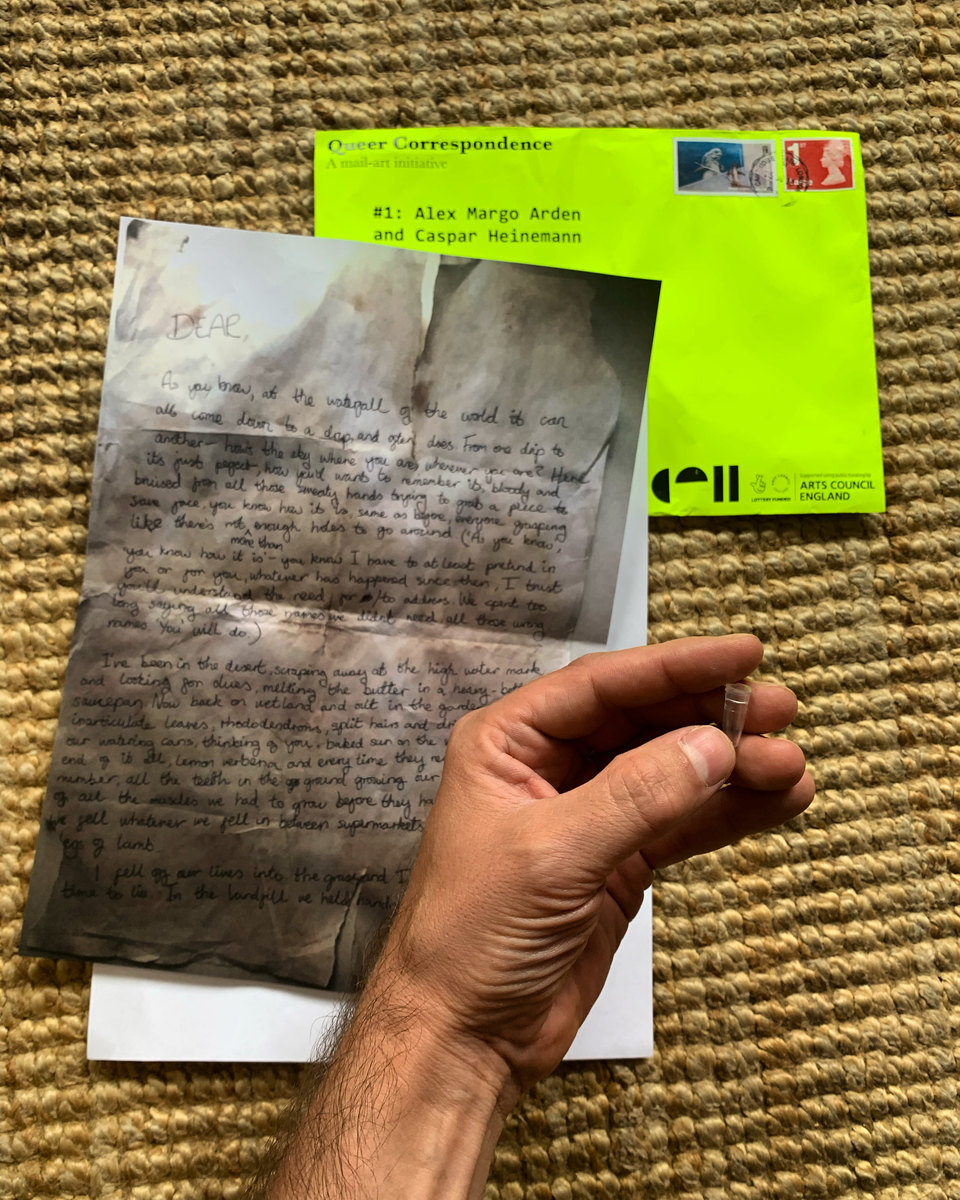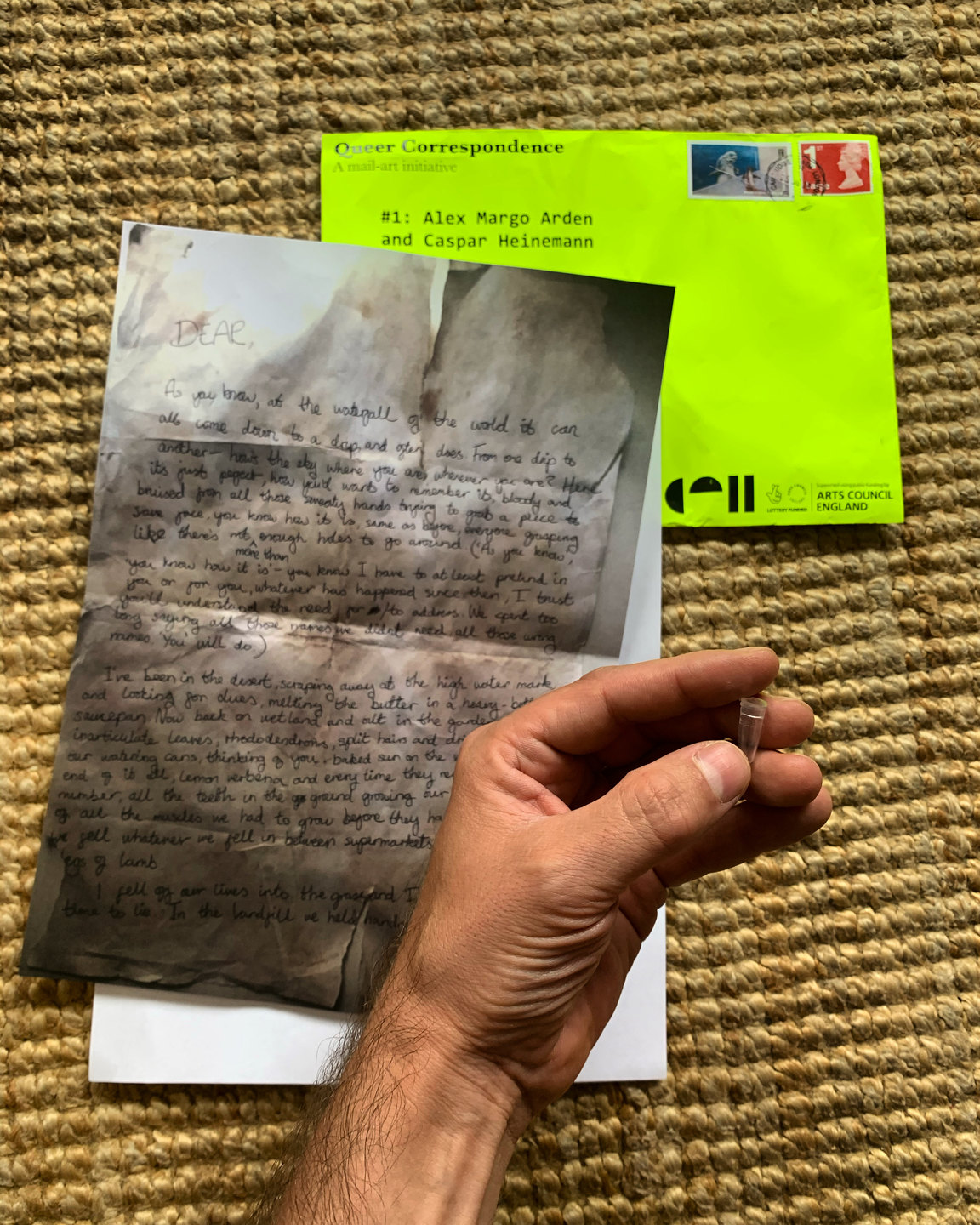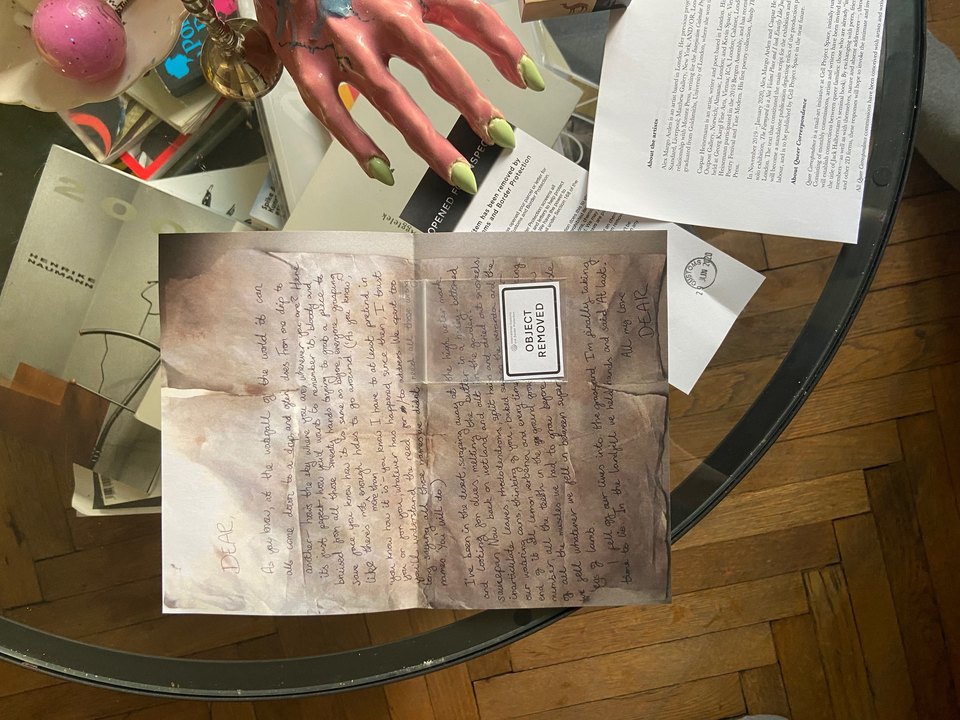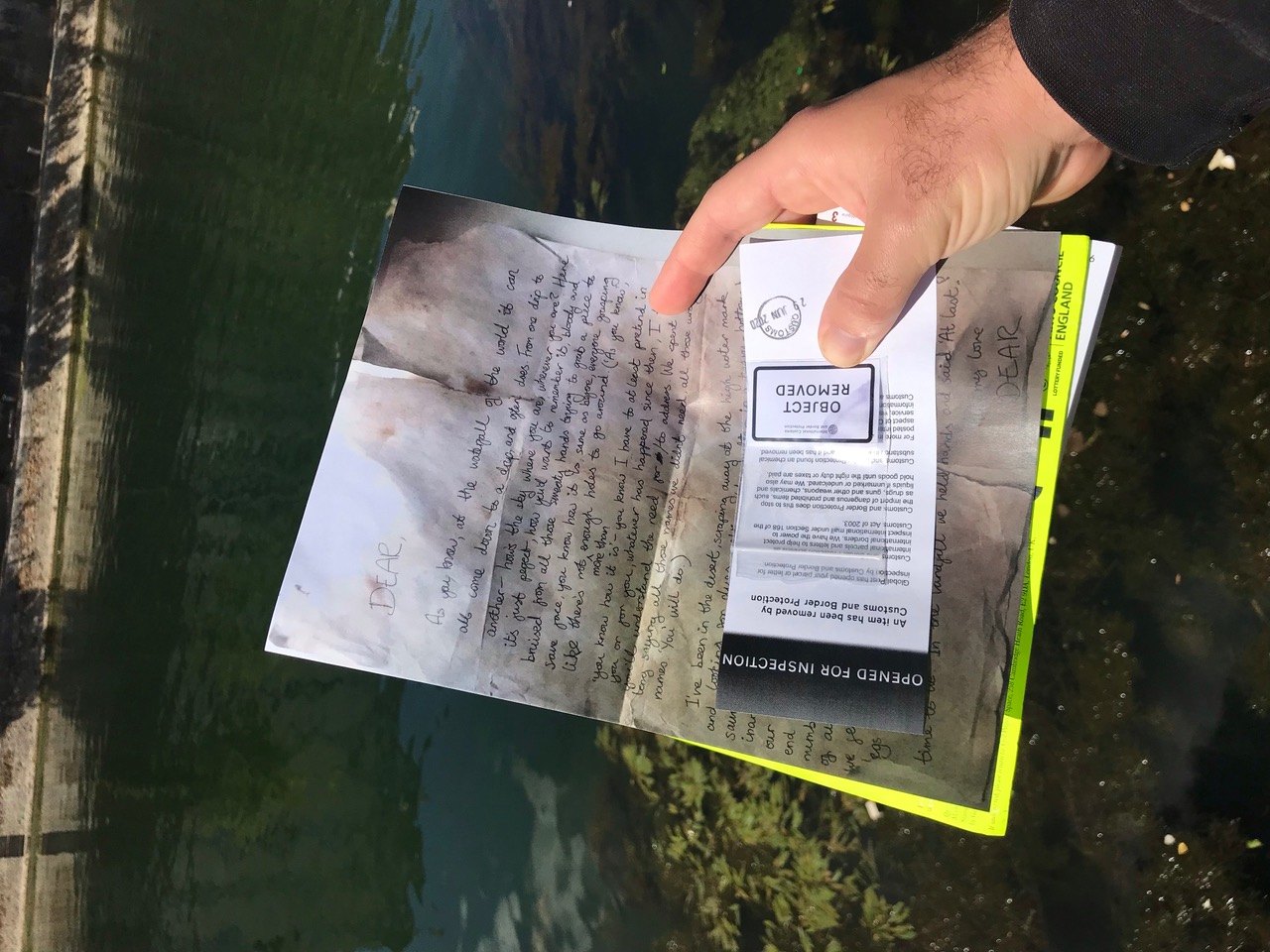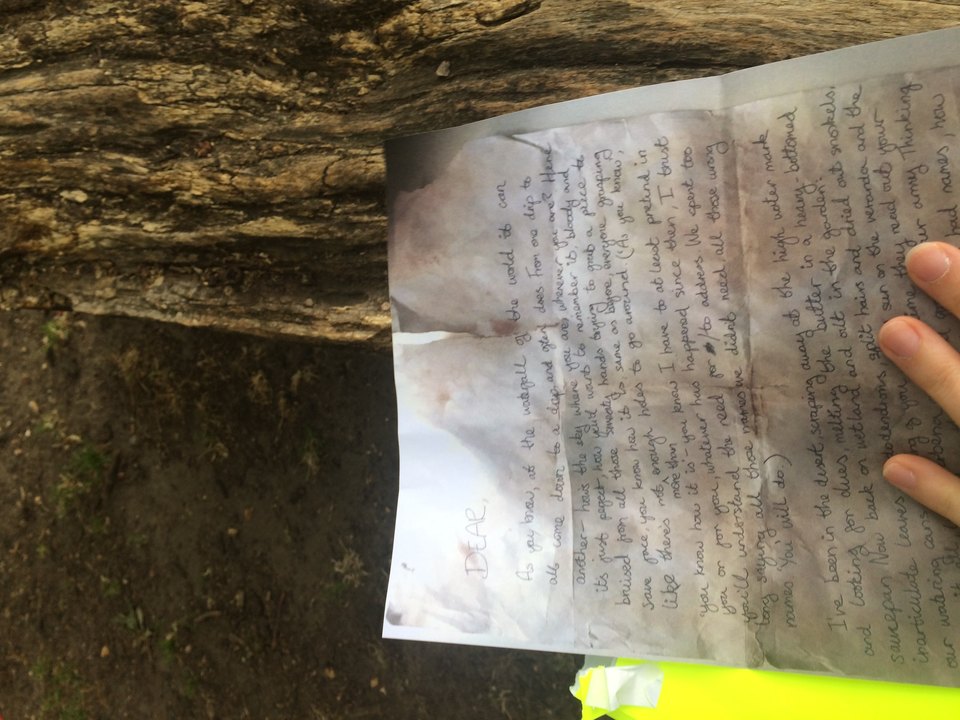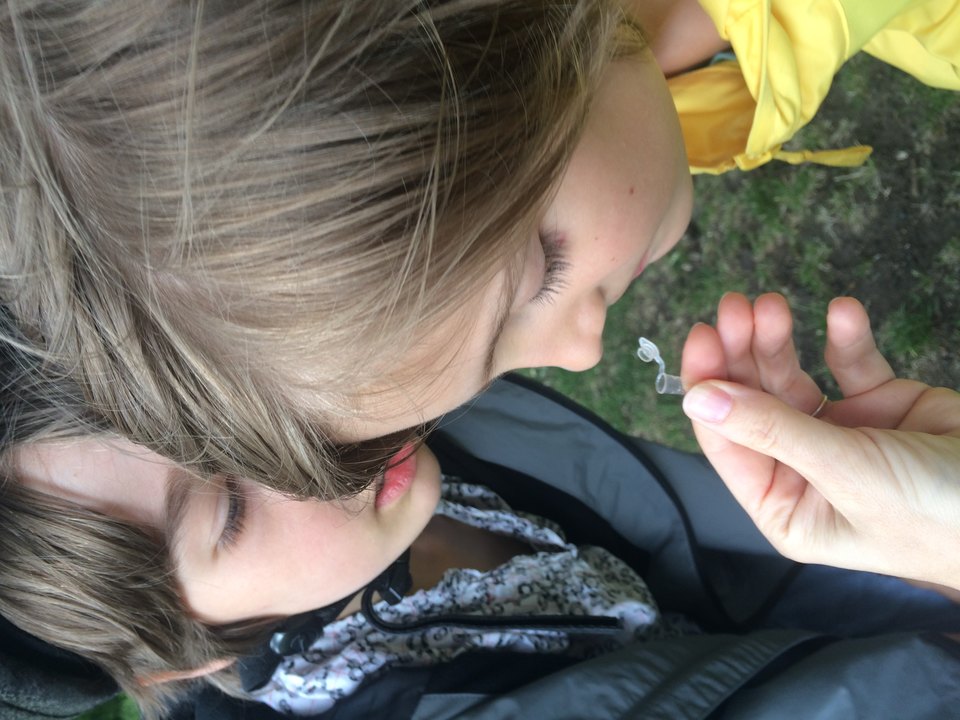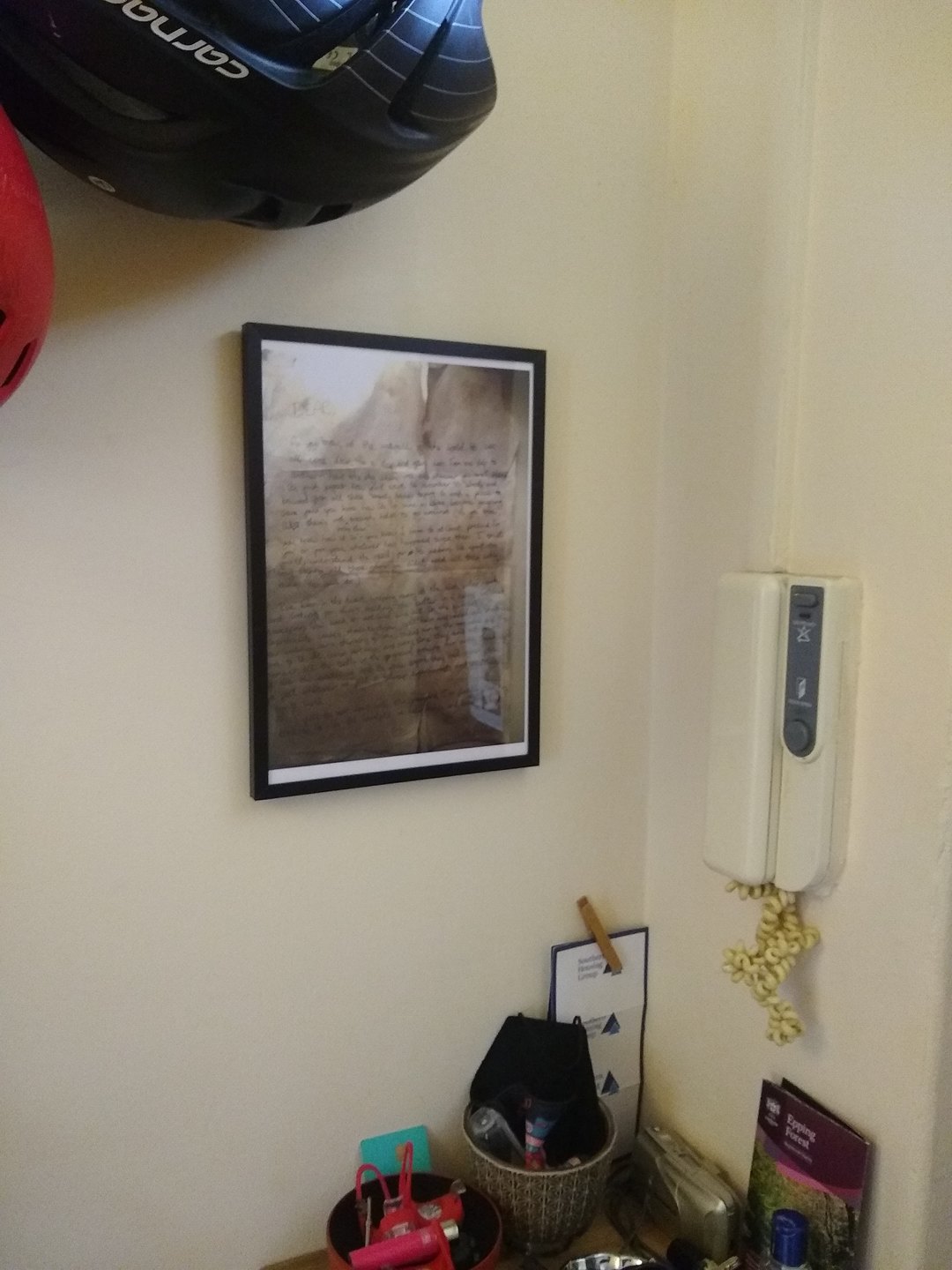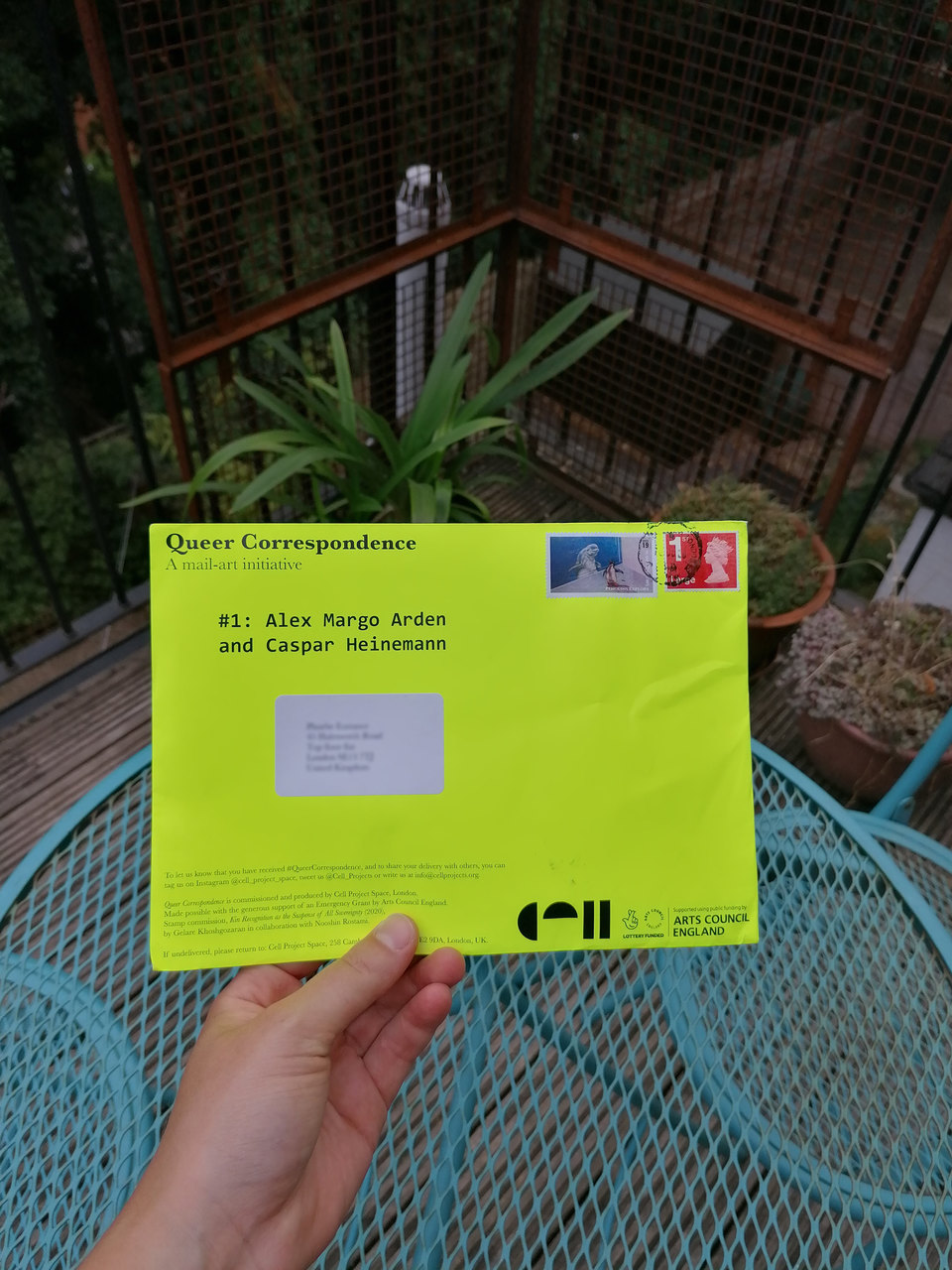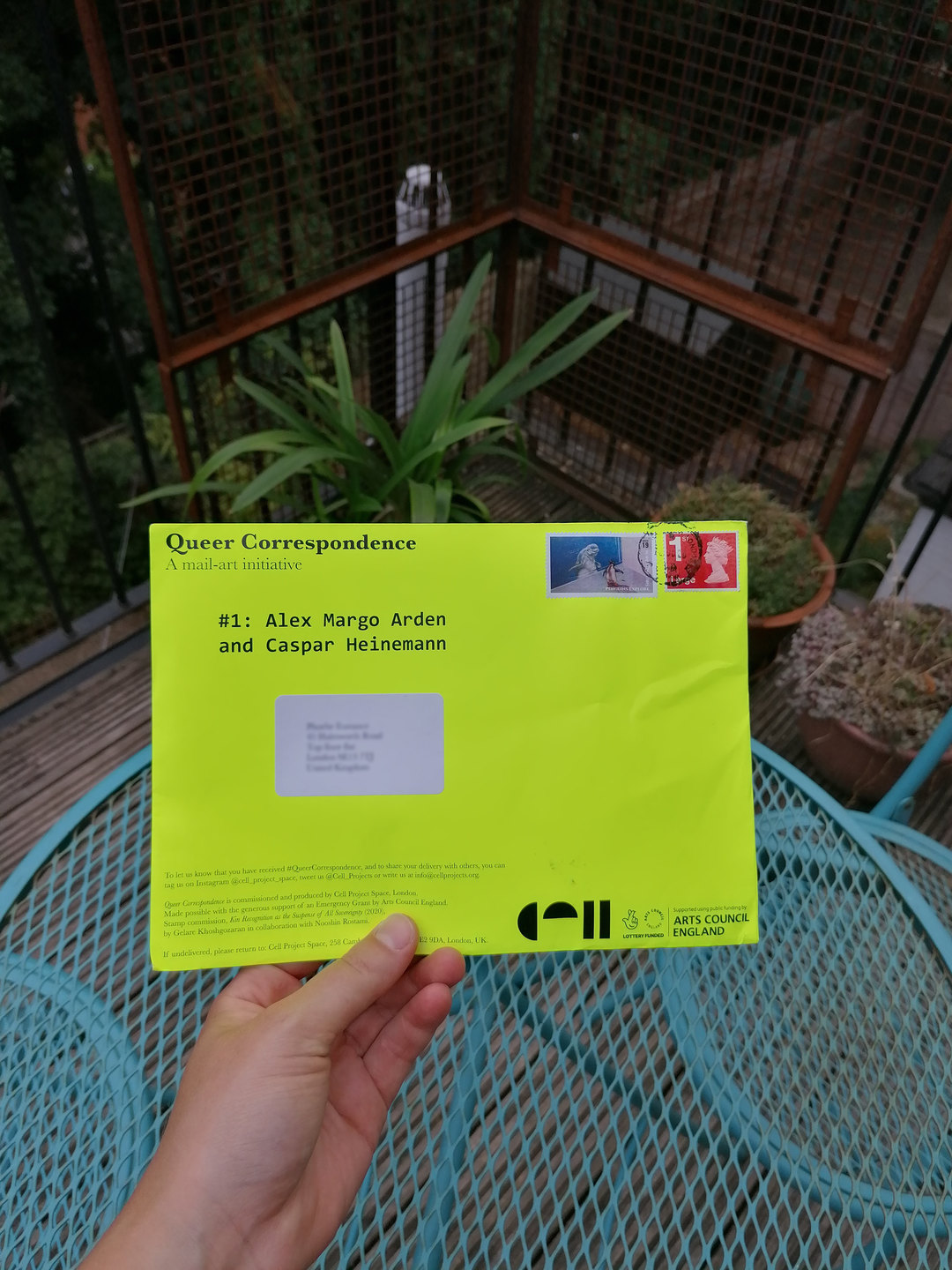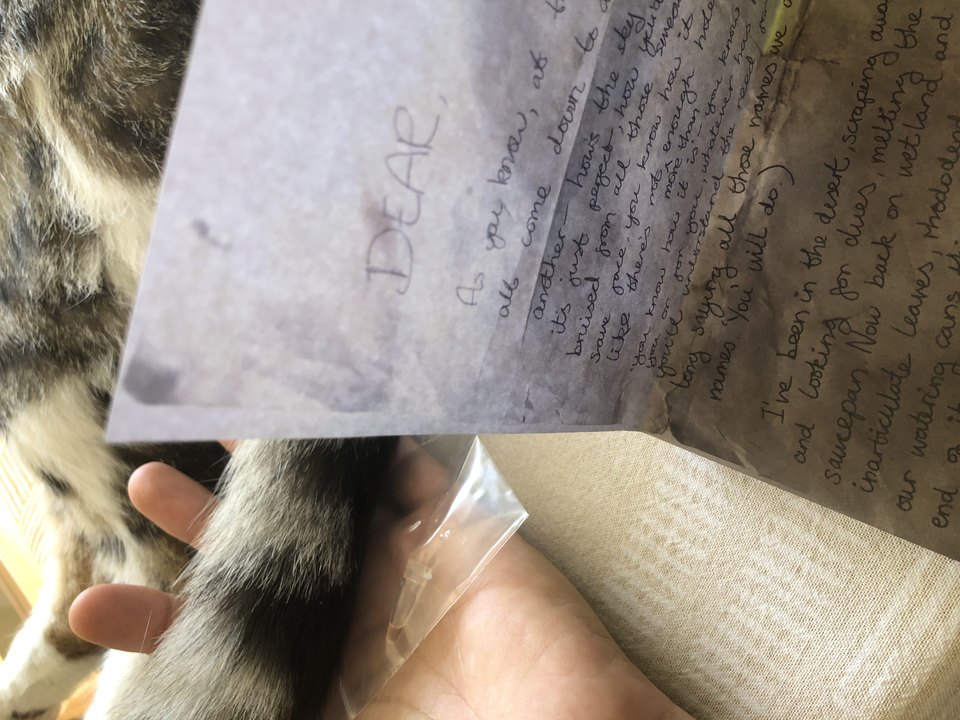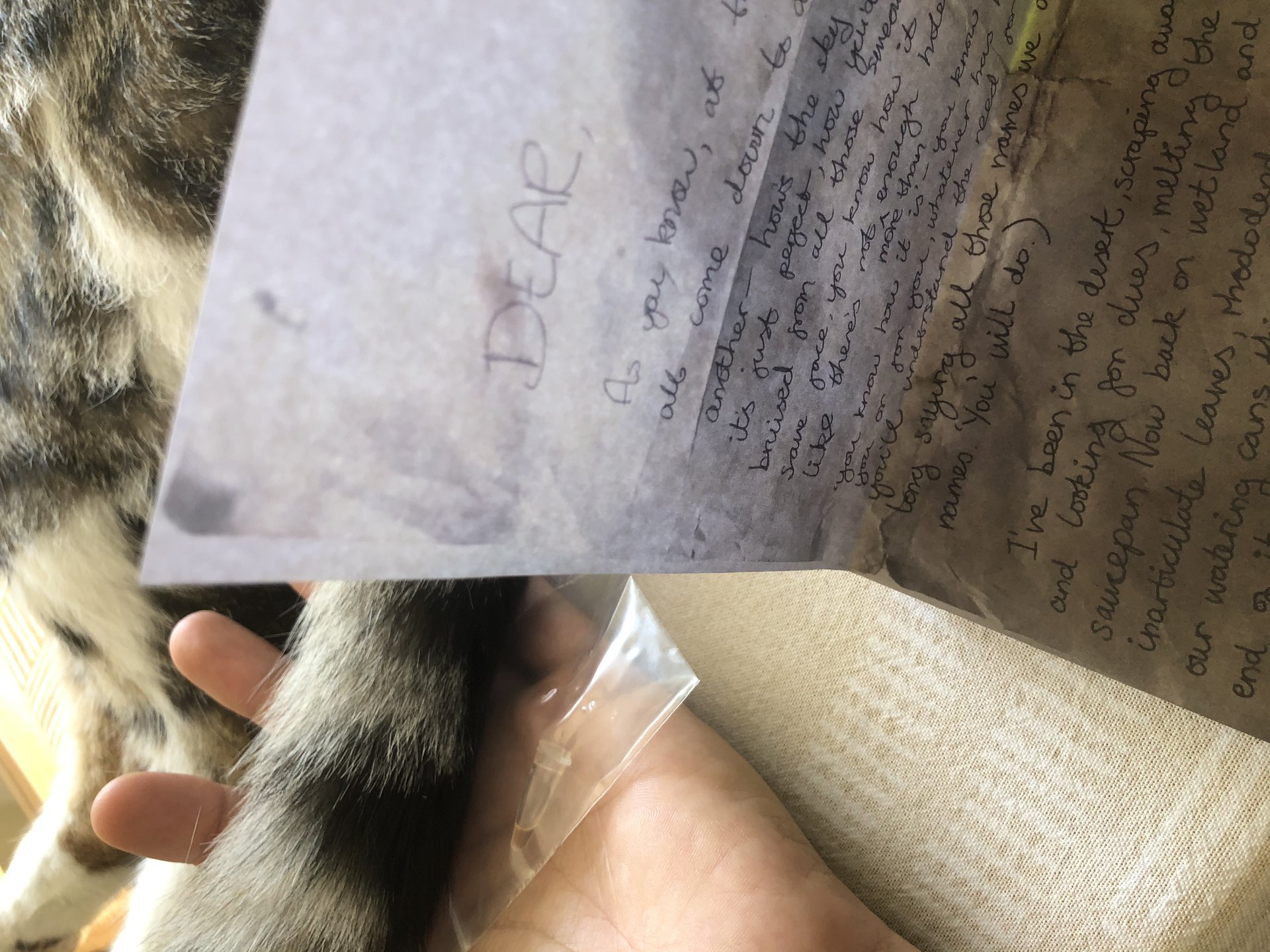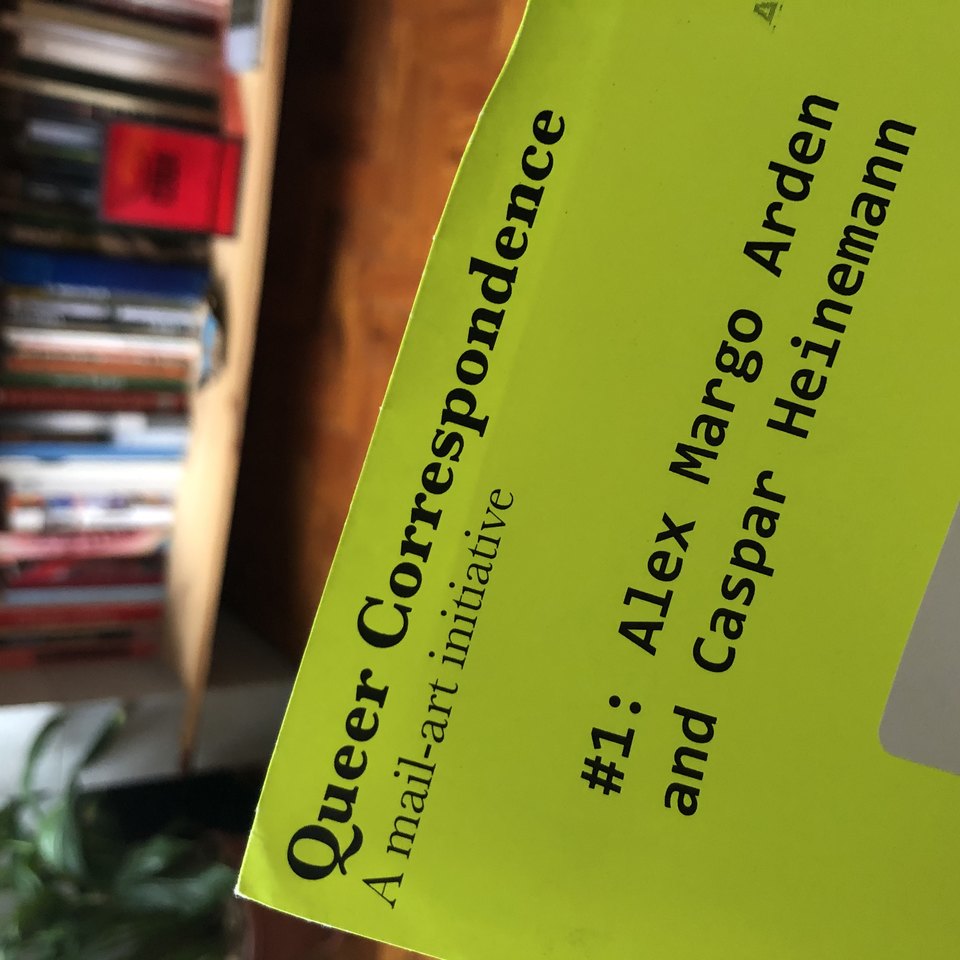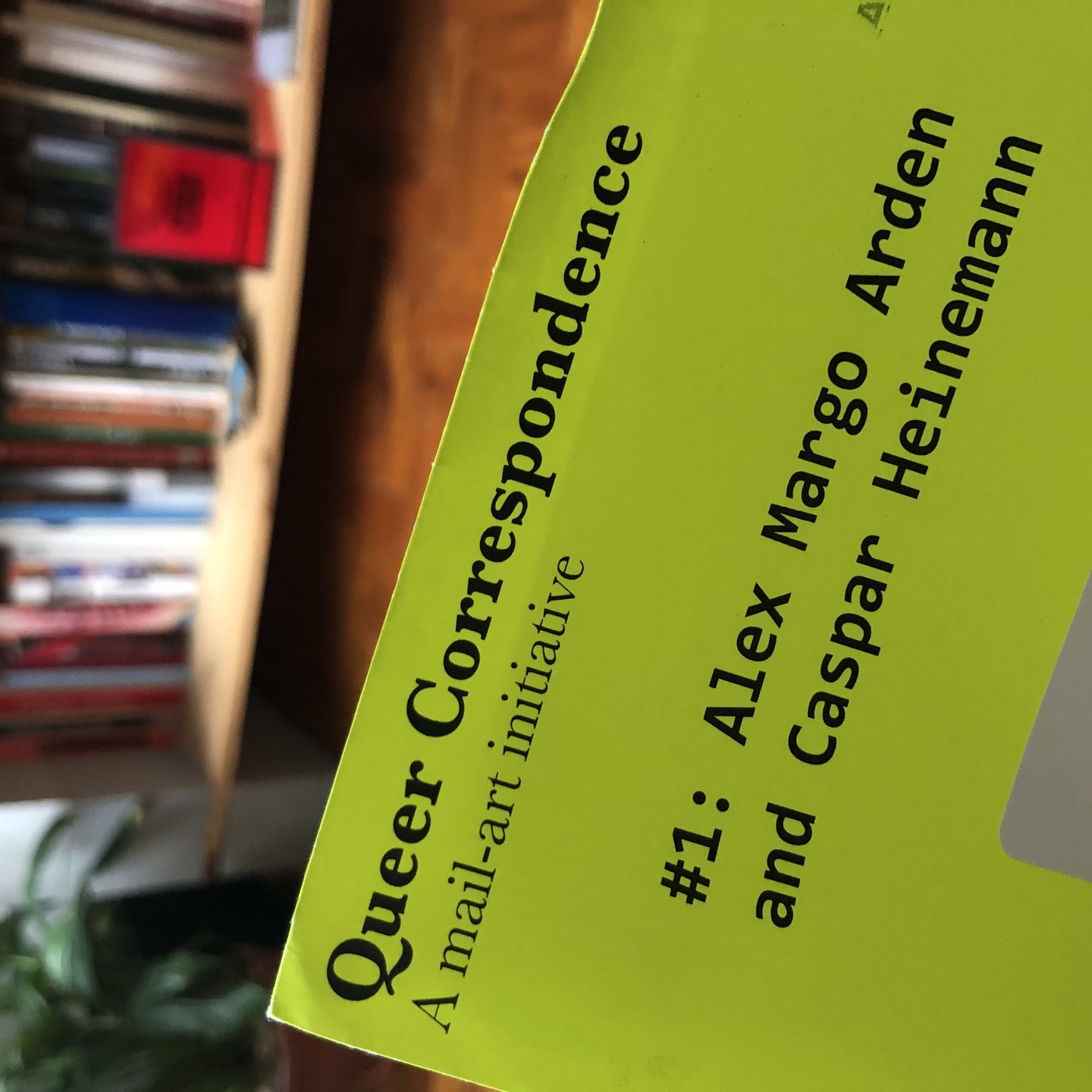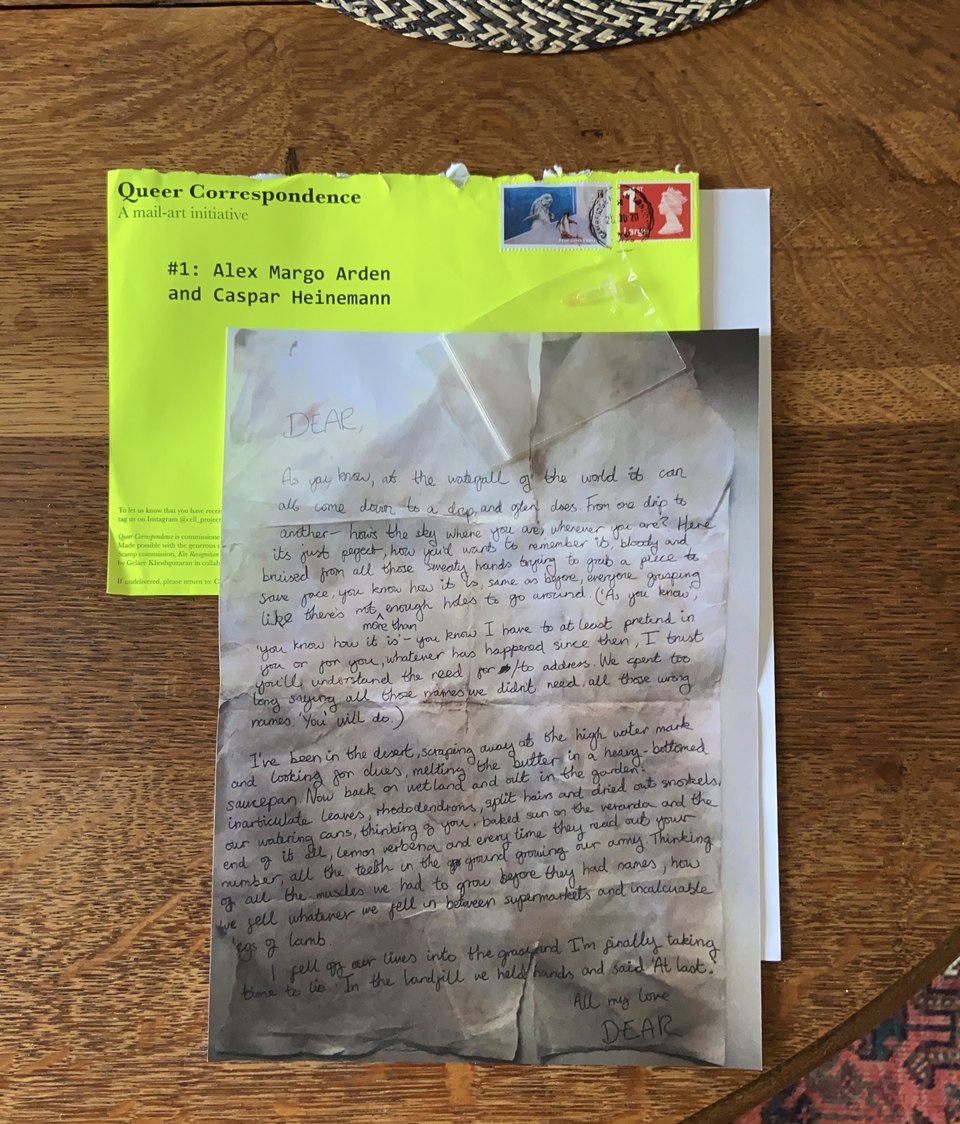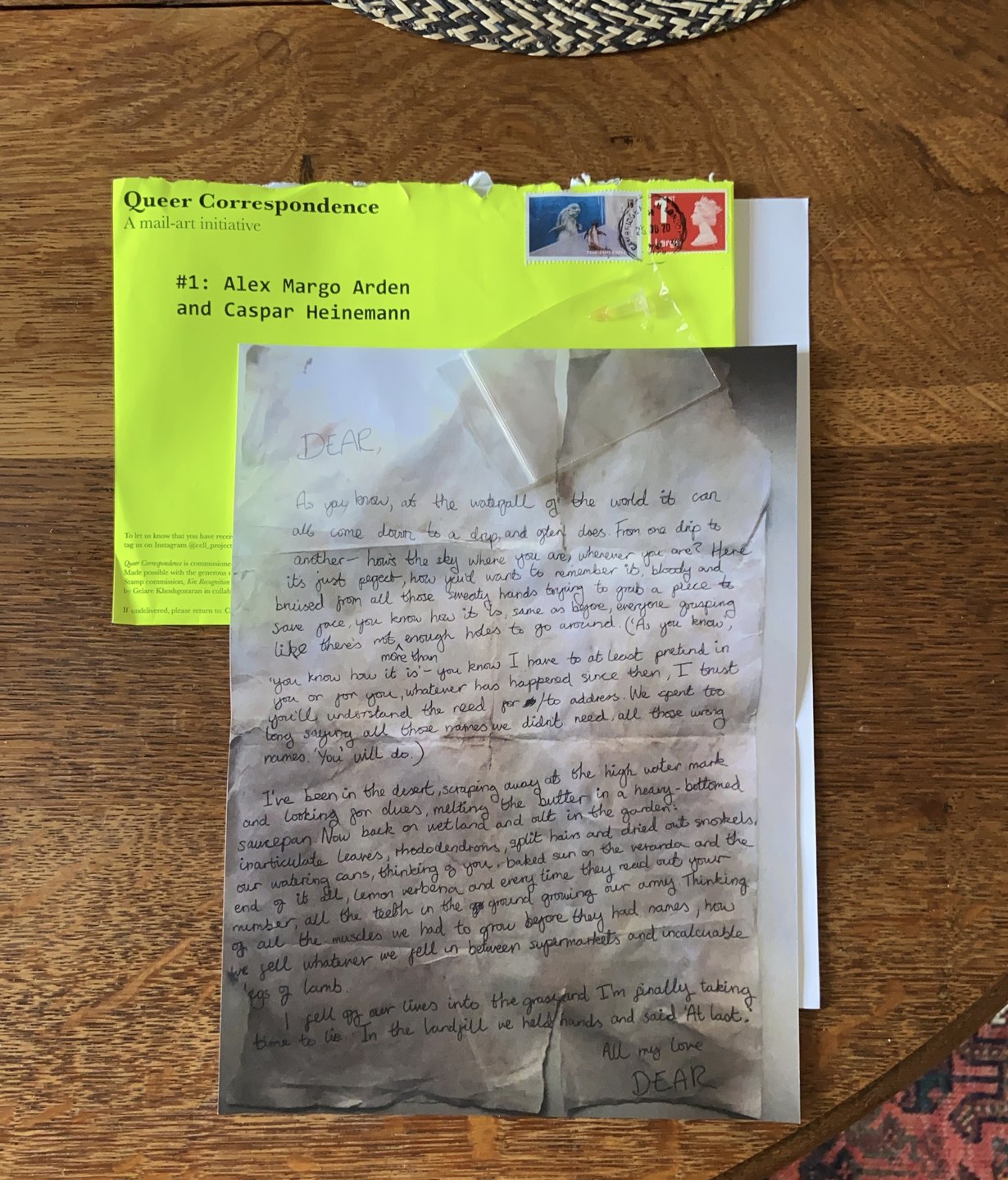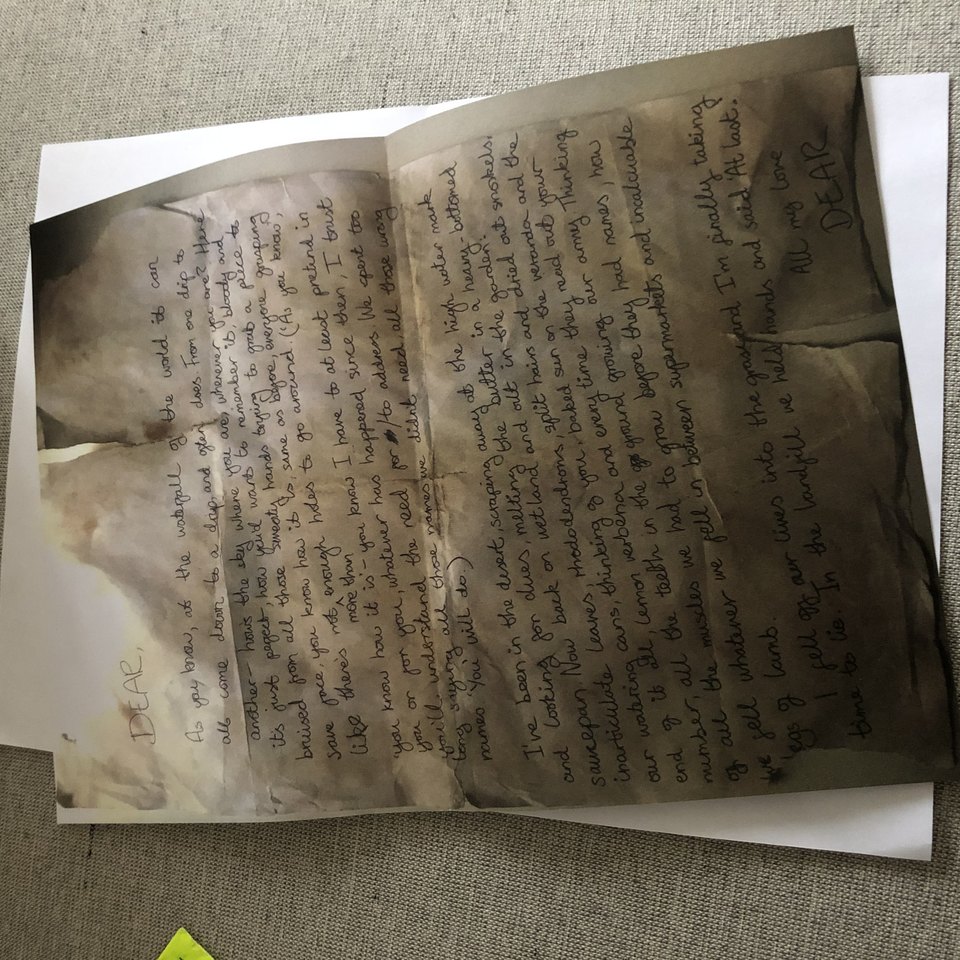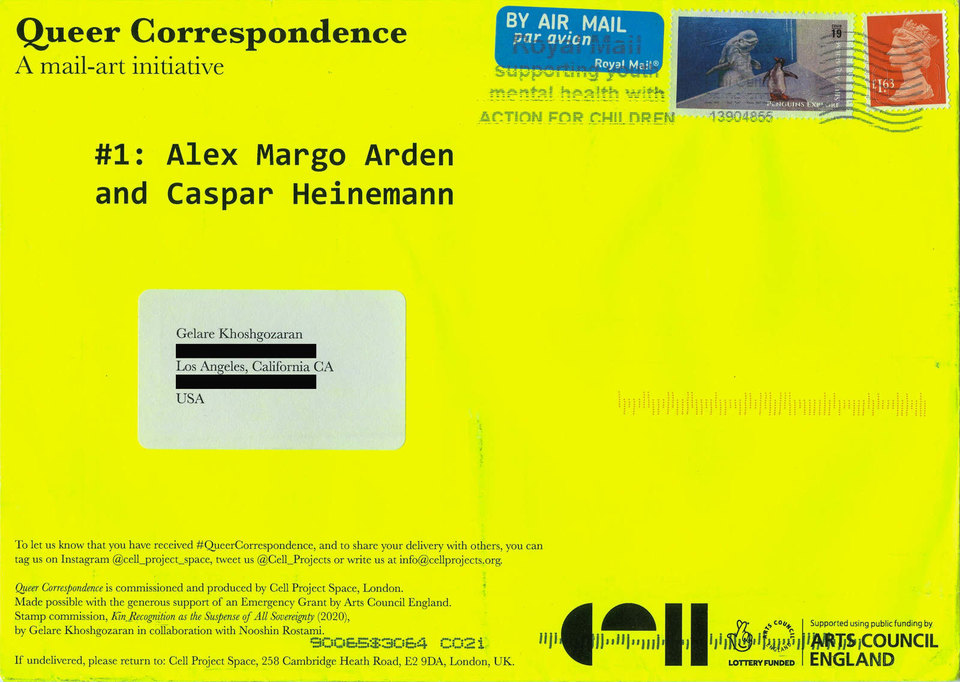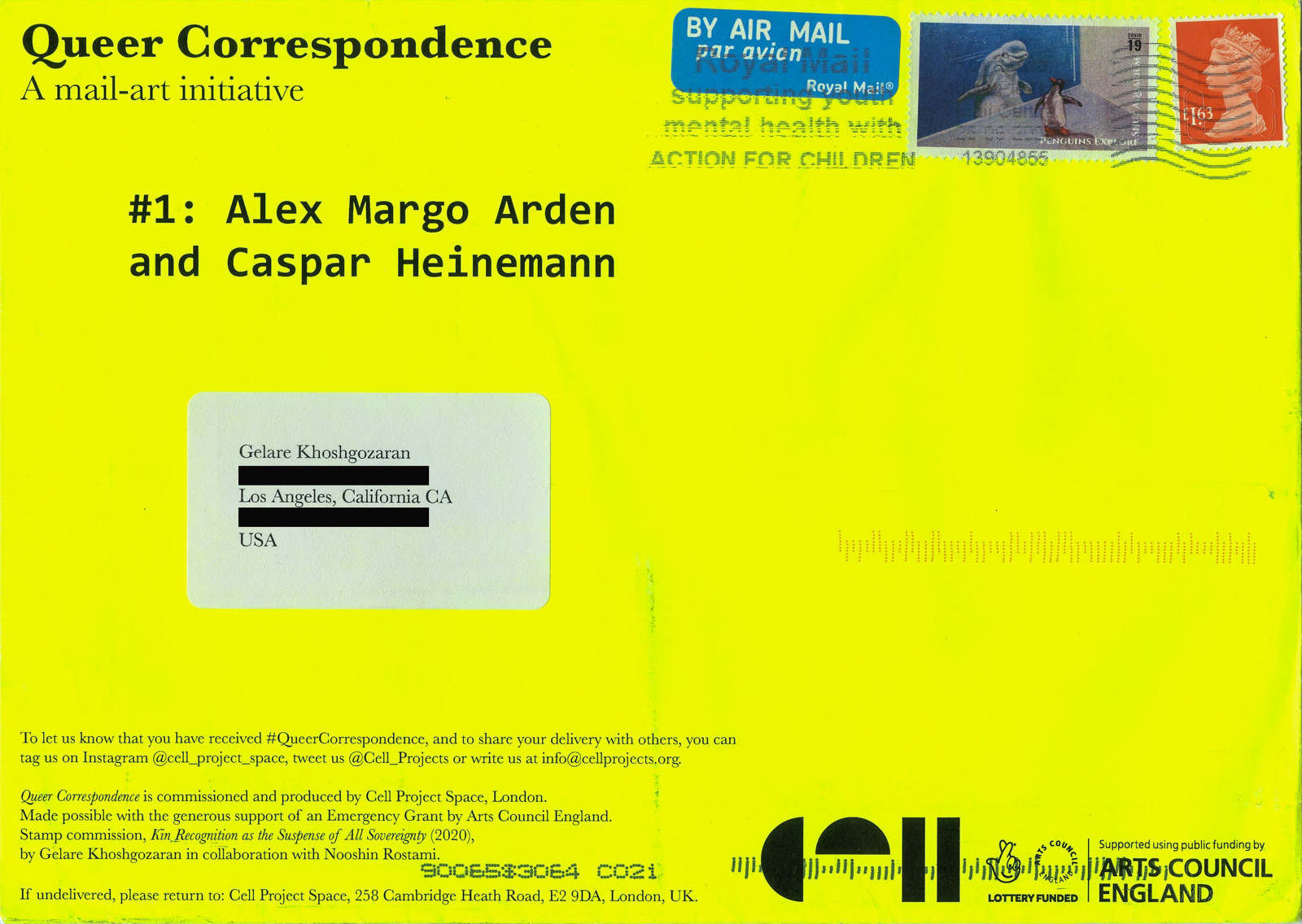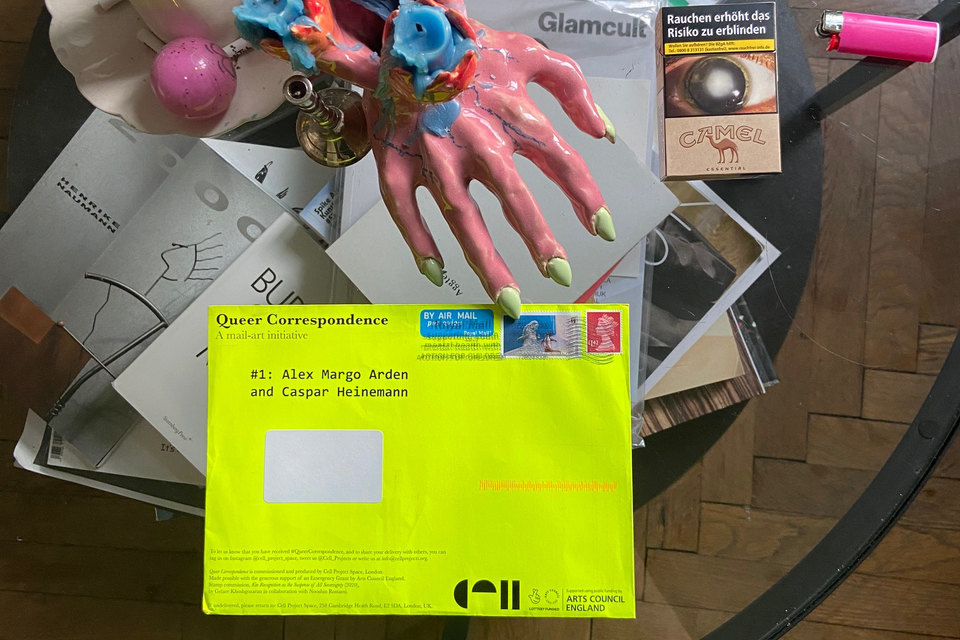
“Dear”
With such open-ended address, artist Alex Margo Arden and artist and writer Caspar Heinemann officially welcome you to the first commission as part of Queer Correspondence; a mail-art initiative conceived with many of you –dears– in mind. “Dear” is an invitation that is extended to everyone while simultaneously withholding the who(s), what(s) and where(s) that, in other cases, would more clearly demarcate the terms of engagement, as well as the context for understanding.
Straight-forward legibility would be at odds with Arden and Heinemann’s on-going collaborative work, much of which stems from their shared interests in gender illusion, marginalised mediumship and binary oppositions (in addition to cults, chronic wounds, puppetry, and fate, to mention only a few of their very specific explorations to date.) However, as much as this addressal may have initially given us permission to read, Arden and Heinemann have also created a situation through which private correspondence, and its evidence of intimacy, has been intercepted.
Inspired by methods of living history, and as a continuation of their equally-sustained interest in theatrical conventions, the artists have produced a multi-sensory experience invoking themes of trickery, trapping, evidence, interception and caution. This performance of sorts, facilitated by the postal system, gives insight into the queer intimacy of a trans/gay friendship/companionship/relationship through a collection of objects and affects, some of which are part of your correspondence, including: the olfactory experience of an odour, the haptic nature of a prop vial, the narrative object of a letter, and, in some cases (for everyone outside of the UK), the pre-emptive removal of the vial, avoiding its seizure by the “International Customs and Border Protection” – a force that, in the context of a post-Brexit island in isolation, is as painfully real as bluntly fabricated.
The object(s) and their narrative are locked in an amorphous time period that is, fitting to their anonymity, seemingly rooted in a personal past event; and us, as its recipient(s), become voyeurs to this moment of trans/gay relationality. The battered and weathered letter is thus presented not as an original document, but as a facsimile; a photograph that is itself an object as much as evidence of the object. Within it, Heinemann pre-empts this exposure, making use of grammar to further a feeling of information being co-opted, and constructing sentences as if they were in danger of being redacted.
Arden has produced an odour that is a sensual residue of the situation that Heinemann recounts in his letter. The artist has herself described the smell as “sweat or condensation, or a leak in the roof.” When I smell it (and my bedroom whiffed of it for days) I think of mustiness, earth and the leftover cigarette stench on unwashed clothes. For those of you who have received it in the plastic vial, this object simultaneously functions as a container of the experience as well as constituting the memory of it. For those of you for whom the vial has been removed, droplets leaked into the empty plastic bag containing the paper slip “OBJECT REMOVED” subvert a system that may have otherwise prevented its safe journey.
I have loved picturing these journeys and being affected by them –both the physical movement that these letters will make across the world, now and over the next six months, as much as the manifold responses that you, its recipient(s), may have on their various arrivals. In a not dissimilar way to Arden and Heinemann’s project, the context and addressal of Queer Correspondence is one of community self-nurturing, while also extending contact through the act of reaching out to others. This is a gesture of solidarity that I believe is central to the queer community, and one that I hope will be present in manifold ways throughout this project.
Yours sincerely,
Eliel Jones
Associate Curator, Cell Project Space
Queer Correspondence is a mail-art initiative at Cell Project Space consisting of monthly commissions, artists and writers have been invited to begin correspondences by mail that will establish connections between queer families: those who are already “in a queer time and place” (following the title of Jack Halberstam’s seminal book). By exchanging with peers, friends, loved ones and close community members—as well as with themselves, nature and absent addressees—, through writing, poetry, photographs and other 2D forms, these responses will hope to invoke the intimate and invisible gaps of this moment.
Alex Margo Arden is an artist based in London. Her previous projects have been presented at The Royal Standard, Liverpool; Matthew Gallery, New York; AND/OR, London; and Serf, Leeds. She has an ongoing relationship with Montez Press, writing for the Interjection Calendar Project, and featuring on Montez Radio. She graduated from Goldsmiths, University of London, where she won the Hamad Butt Memorial Prize.
Caspar Heinemann is an artist, writer and poet based in London. His solo exhibitions have been presented at Outpost Gallery, Norwich; Almanac, London; and Kevin Space, Vienna. Recent group exhibitions have been held at Georg Kargl Fine Arts, Vienna; ICA, London; Cabinet, London; and PDX Contemporary, Portland. Heinemann participated in the 2019 Bergen Assembly, and has recently read at Camden Arts Centre, Sussex Poetry Festival and Tate Modern. His first poetry collection, Novelty Theory, was published in 2019 by The 87 Press.
In November 2019 – January 2020, Alex Margo Arden and Caspar Heinemann staged their first collaborative solo exhibition, The Farmyard is a Not Violent Place and I look Exactly Like Judy Garland, at Cell Project Space, London. The text that constituted the main script for the exhibition and an accompanying set of performances will become a standalone publication depicting relics of the production process and traces of the imaginative.
For any programme and press enquiries, please contact Eliel Jones, eliel@cellprojects.org
Made possible with the generous support of an Emergency Grant from Arts Council England.




